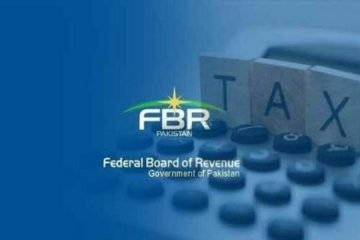Tax compliance is a legal obligation for individuals, associations of persons (AOPs), and companies operating in Pakistan. The Federal Board of Revenue (FBR) enforces the Income Tax Ordinance, 2001 (ITO), which provides a detailed framework for the assessment, collection, and enforcement of income tax in the country. Over the years, various amendments have been made to the Ordinance to strengthen enforcement and ensure taxpayer compliance. The Finance Act, 2024 has introduced new penalties and offenses, and has expanded the scope of existing provisions.
This article provides a detailed overview of the civil and criminal penalties under the Income Tax Ordinance, with a particular focus on updates made by the Finance Act, 2024.
Facing a Blocked SIM Card?Over 500,000 SIM cards linked to individuals who haven’t filed their returns have been blocked by FBR!
Decoding the Penalties: Civil vs. Criminal
The ITO distinguishes between two broad categories of penalties: civil and criminal.
Civil Penalties: These are primarily financial in nature and are levied by the Federal Board of Revenue (FBR) for various forms of non-compliance. The penalty amount is often tied to the extent of non-compliance and can escalate up to 100% of the tax due. Civil penalties are designed to rectify unintentional errors or negligence and incentivize timely compliance. Common examples of civil penalties are:
- Late Filing of Tax Returns: Missing the stipulated deadlines for filing income tax returns triggers penalties that can accumulate daily.
- Non-Payment of Tax: Failure to remit taxes owed by the due date incurs financial penalties.
- Under-reporting of Income: Declaring less income than actually earned, even if unintentional, can attract penalties.
- False or Misleading Information on Tax Returns: Providing inaccurate or deceptive information in tax filings, whether knowingly or unknowingly, is subject to civil penalties.
- Failure to File Wealth Statements: Not submitting the required wealth statements or reconciliation statements within the deadline also leads to specific penalties.
Criminal Penalties: These are far more severe and are reserved for intentional and egregious violations of the ITO. Criminal penalties can include imprisonment, substantial fines, and even asset forfeiture. They are intended to deter willful misconduct and tax evasion, signaling the government’s firm stance against tax crimes. Grave examples of criminal penalties are:
- Tax Evasion: This is the deliberate act of illegally avoiding paying taxes, often involving deceptive practices and concealment of income.
- Tax Fraud: Intentionally deceiving the tax authorities to gain an illegal tax advantage, often through falsified documents and fraudulent claims.
- Willful Default: Deliberately refusing to pay taxes despite having the means to do so.
- Abetting or Conspiring to Commit Tax Evasion or Fraud: Assisting or participating in schemes designed to evade or defraud the tax system.
Calculating Fines for Not Filing
Let’s examine some specific civil penalties in detail, particularly focusing on late filing penalties for both income tax returns and wealth statements, as these are commonly encountered by taxpayers.
Penalties for Failing to File Income Tax Returns (Section 114):
The penalty for late filing is calculated daily and is the higher of the following:
- 0.1% of the tax payable for each day of default. This penalty is directly proportional to the amount of tax owed.
- Rs. 1,000 for each day of default. This provides a fixed daily penalty, particularly impacting those with lower tax liabilities.
Minimum Penalty Thresholds:
- Rs. 10,000: For individuals where salary income constitutes 75% or more of their total income (recognizing the often simpler tax situation of salaried individuals).
- Rs. 50,000: For all other cases (businesses, self-employed individuals, etc.).
Maximum Penalty Cap:
- The penalty will not exceed 200% of the tax payable for that specific tax year. This provides a ceiling on accumulating penalties, preventing disproportionately large fines.
Tax Evasion and its Ramifications
Tax evasion is not a victimless crime. It significantly undermines Pakistan’s economy and social fabric. The consequences extend far beyond individual penalties:
- Revenue Deprivation: Tax evasion robs the government of crucial revenue needed to fund essential public services like education, healthcare, infrastructure, and social safety nets.
- Unfair Competition: Businesses that evade taxes gain an unfair advantage over compliant businesses, creating an uneven playing field and discouraging honest economic activity.
- Social Instability: Widespread tax evasion can erode public trust in government and fuel social unrest as citizens perceive an unjust system where some evade their responsibilities while others bear the burden.
- Hindered National Development: Reduced government revenue directly impacts Pakistan’s ability to invest in development projects, hindering economic growth and societal progress.
Penalties for Tax Evasion
The ITO and Pakistani law prescribe severe penalties for tax evasion to act as a strong deterrent:
- Fines: Substantial financial penalties are imposed, often significantly exceeding the evaded tax amount.
- Imprisonment: Jail terms, sometimes extending up to several years, are a stark reality for those convicted of tax evasion.
- Asset Forfeiture: The government has the power to seize assets acquired through or linked to tax evasion, including property, bank accounts, and other valuables.
- Reputational Damage: Conviction for tax evasion can severely damage an individual’s or business’s reputation, leading to loss of credibility, business opportunities, and social standing.
- Difficulty in Accessing Financial Services: Tax evaders may face challenges in obtaining loans, mortgages, or other financial services due to their tarnished financial record.
- Travel Restrictions: In some cases, tax evasion can lead to restrictions on international travel, impacting personal and business mobility.
New Dimensions to Penalties
The Finance Act 2024 has brought forth further amendments and additions to the penalty regime, signaling an even stronger emphasis on tax compliance. Some key penalty areas introduced or enhanced in the Finance Act 2024 include:
- Enhanced Late Filing Penalties (Post-Notice): For failing to file income tax returns after receiving a notice from the tax authorities, the penalty structure is now daily-based, mirroring the general late filing penalties (0.1% of tax payable or Rs. 1,000 per day, whichever is higher), with minimum penalties of Rs. 10,000 for individuals and Rs. 50,000 for other entities.
- Penalties for Unregistered Traders and Shopkeepers (Tajir Dost Scheme): Traders and shopkeepers obligated to register under the Tajir Dost Scheme face business disruptions for non-registration or non-payment of advance tax. First offenses can lead to a 7-day sealing of the shop, while subsequent offenses escalate to 21-day sealing for each default.
- Heavy Fines for Disobeying FBR General Orders: Failure to comply with an Income Tax General Order issued by the FBR within 15 days can result in a Rs. 50 million fine for the first offense and a staggering Rs. 100 million fine for subsequent offenses. This underscores the importance of adhering to FBR directives.
- Penalties for Late Tax Payment on Share Transactions: Delaying or failing to pay tax on share sale considerations at the time of transaction or SECP/SBP registration attracts a penalty equal to 50% of the tax amount involved.
- Penalties for Incomplete/Inaccurate Corporate and AOP Returns: Companies and Associations of Persons submitting incomplete or inaccurate tax returns (missing details, blank annexures, etc.) face a penalty of Rs. 500,000 OR 10% of the tax payable on taxable income, whichever is higher.
A Proactive Approach to Tax Compliance
Avoiding tax penalties is not about luck; it’s about adopting a proactive and responsible approach to tax compliance. Key strategies to minimize the risk of penalties include:
- File Tax Returns Timely and Regularly: Adhere strictly to all deadlines for filing income tax returns, wealth statements, and other required tax documents. Utilize online filing systems and set reminders to avoid missing due dates.
- Pay Taxes Due Promptly and in Full: Ensure all tax liabilities are paid in full and by the stipulated deadlines. Plan for tax payments in advance and leverage online payment options for convenience.
- Maintain Accurate and Comprehensive Records: Keep meticulous records of all income, expenses, investments, and financial transactions. Organize and store these records systematically for easy access during tax preparation and potential audits.
- Disclose All Income and Assets Honestly and Completely: Provide accurate and complete information in all tax filings. Avoid any temptation to underreport income or conceal assets, as this can lead to severe penalties.
- Seek Professional Tax Advice When Needed: Don’t hesitate to consult with a qualified tax advisor or consultant if you are unsure about any aspect of tax law, complex transactions, or your compliance obligations. Professional guidance can prevent costly errors and ensure you are on the right track.
- Stay Updated on Tax Law Changes: Tax laws and regulations are subject to change. Stay informed about any amendments or new provisions in the ITO and Finance Acts to ensure your compliance strategies are current and effective.
- Respond Promptly to FBR Notices and Communications: If you receive any notice or communication from the FBR, respond promptly and diligently. Address their queries and provide any requested information within the given timeframe to avoid escalating issues and potential penalties.
Embracing Tax Compliance as a Civic Duty
Tax penalties under the Income Tax Ordinance 2001 are not arbitrary punishments; they are integral components of a system designed to promote fairness, accountability, and national development. Understanding the types of penalties, their calculation, and the underlying rationale is crucial for every taxpayer in Pakistan, whether individual or business.




